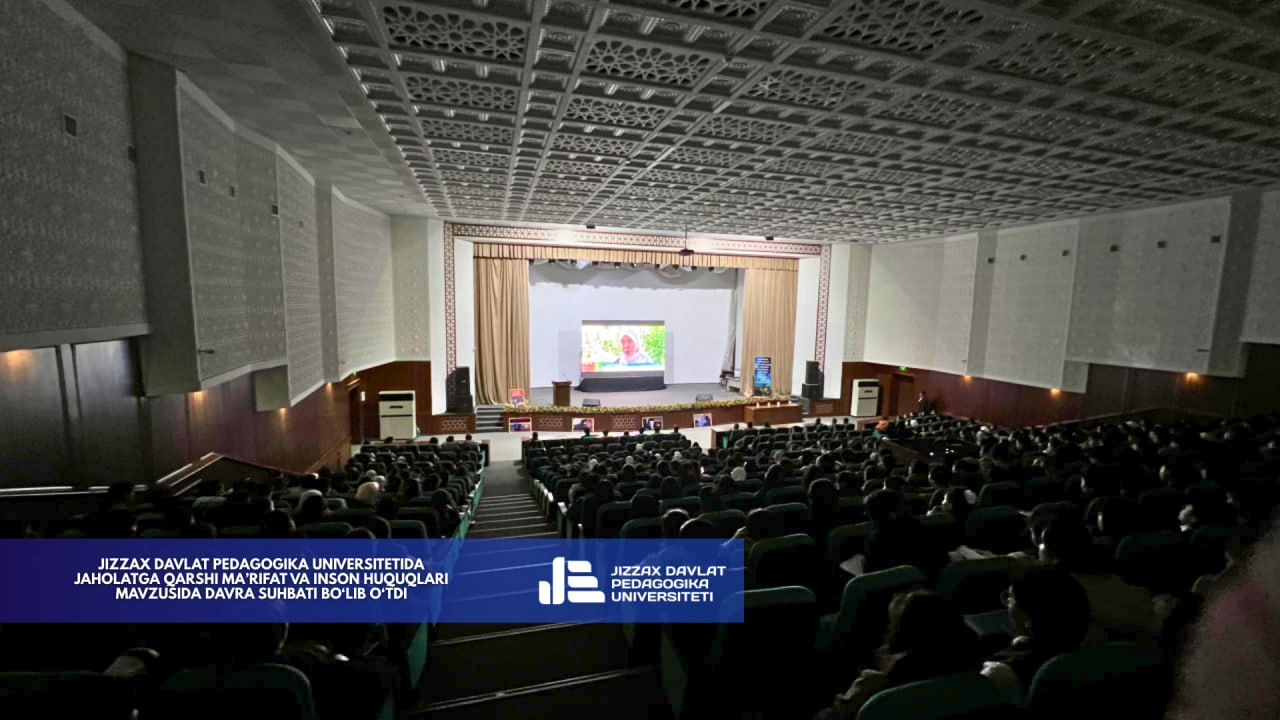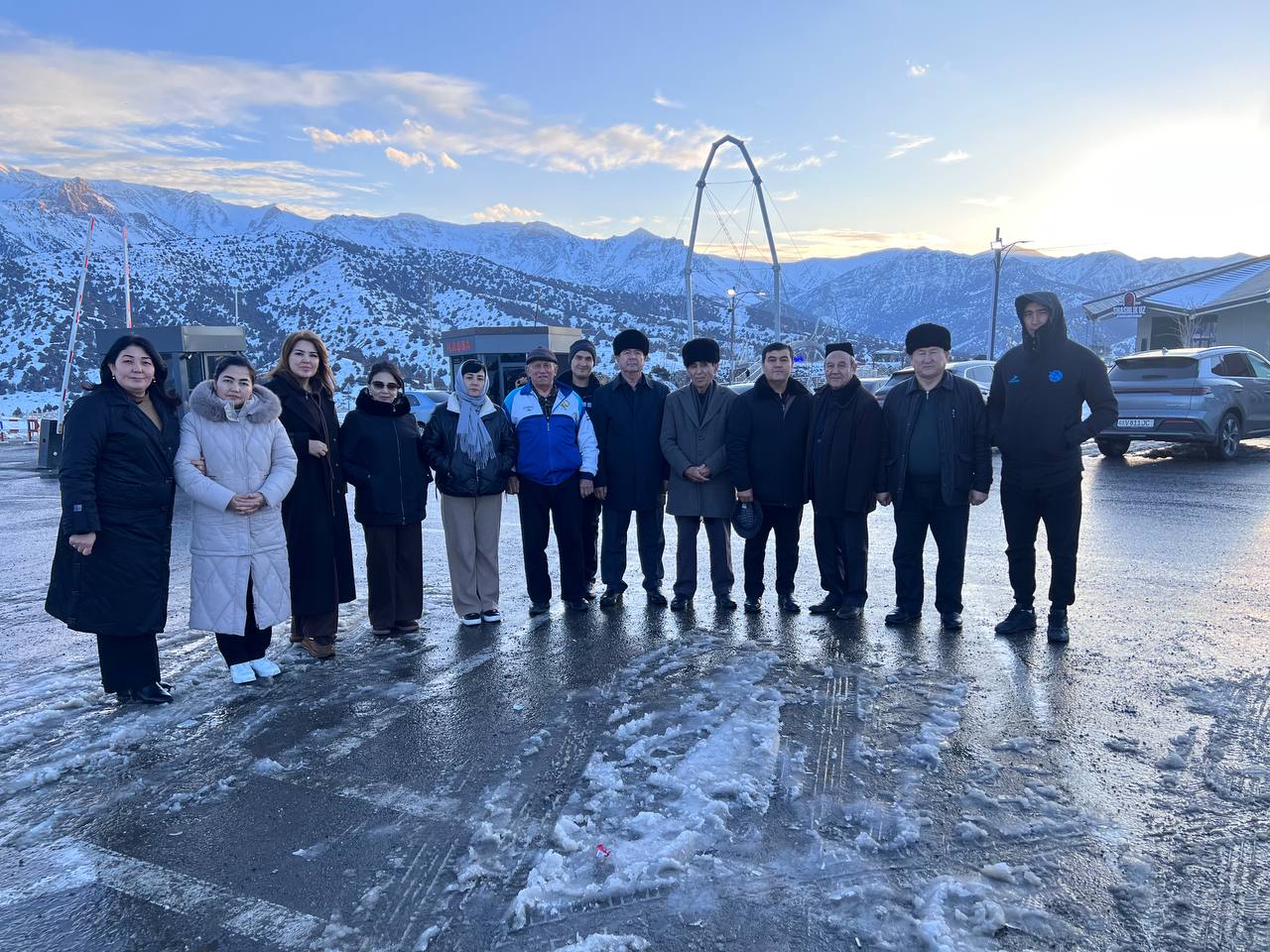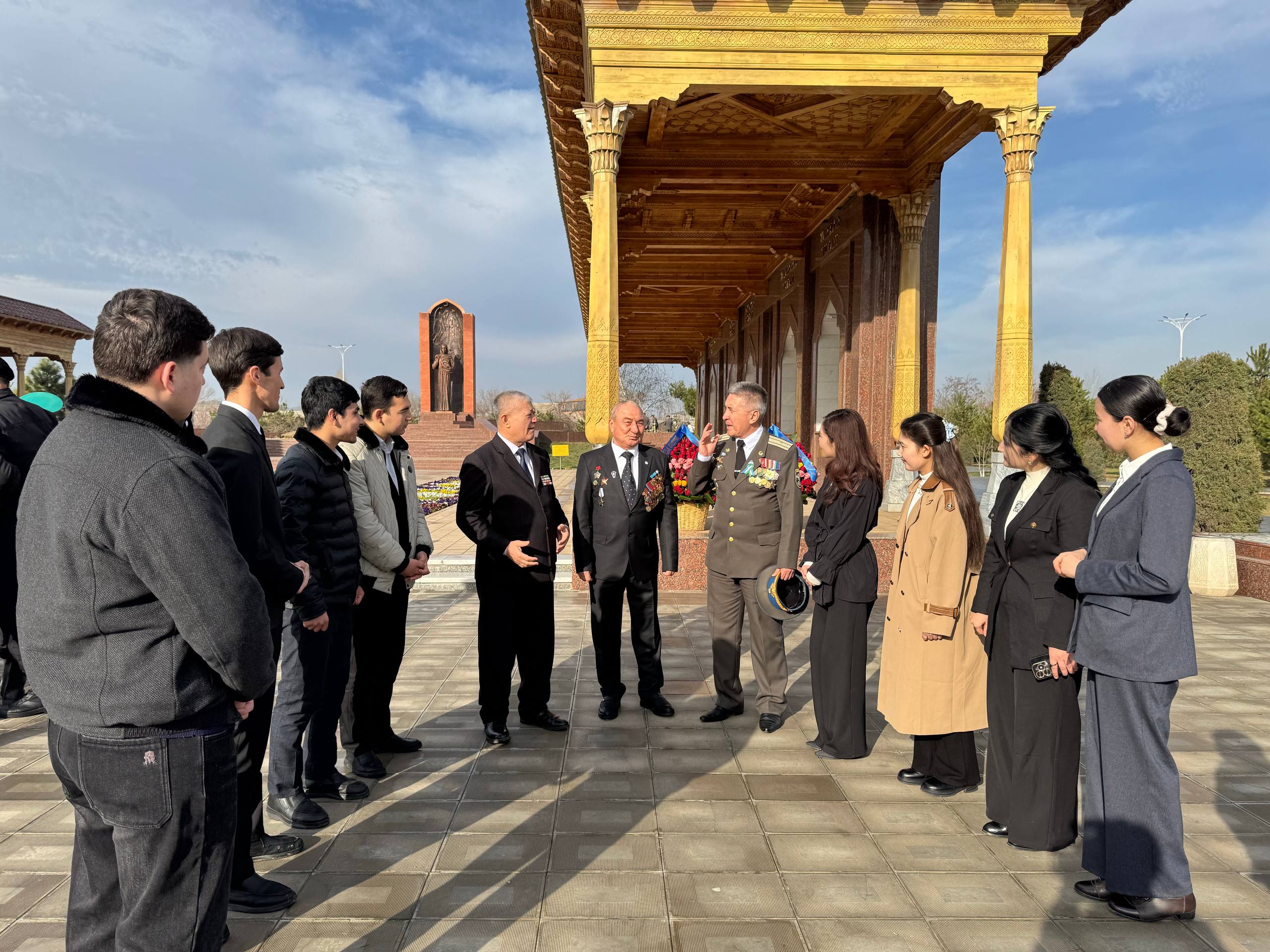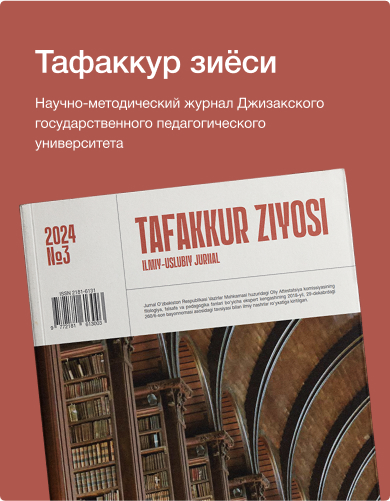Bozorboy Orinboyev was born on June 3, 1936 in the village of Ghazira, Jomboy district, Samarkand region. He first received seven years of education at a school in the village of Ghazira, graduated in 1950, then studied at the Samarkand Pedagogical University until 1954.
Knowing his mind, B. Orinboyev fell in love with the teaching profession, which is why he graduated from the Pedagogical University with honors. His passion for the Uzbek language and literature led him to continue studying the secrets of science at the Faculty of Philology of the Samarkand State University named after Alisher Navoi.
Bozorboy Orinboyev’s interest in scientific research was formed in his student days, at the university, he learned the secrets of knowledge from great linguists and literary scholars such as U.Tursunov, V.Abdullayev, A.Sulaimonov, H.Berdiyorov, H.Doniyorov, O.Ikromov and had close contact with them. During his student years, he lived with the desire to know what is the magic of the world of words.
After graduating from the university in 1959, he returned to his native land. Because one human responsibility did not give him peace: he had to get rid of his family’s debt, even if it was small. In 1959-1961, he worked as a teacher of Uzbek language and literature in school 28, then in secondary school 2, then as head of the scientific department, and finally as school director.
The fact that a twenty-four-year-old boy was promoted to the position of the head of the scientific department and the director of the school in two years was a sign of special ability and courage. This courage led him to his favorite university – graduate school. He completed his post-graduate studies on time (1961-1964) and on September 18, 1964 defended his candidate’s thesis on the topic “Vocative category in the contemporary Uzbek literary language”. After all, the scientist saw his future only in science. In 1965-1967, he worked as an associate professor at the Karshi State University, as an associate professor, head of the department, vice-rector of educational and scientific affairs, and rector (1967-1974) at the Samarkand State Pedagogical Institute, with the dream of following the path of science.
In 1974, with the establishment of the Jizzakh region, the Jizzakh State Pedagogical Institute was opened. Orinboyev Bozorboy Orinboyevich started work as the organizer and first rector of the institute. When the institute was first opened, it started with the departments of the Uzbek language and literature and mathematics faculties, and at the same time, it is a gratifying situation that more than 10 faculties have more than 30 departments.
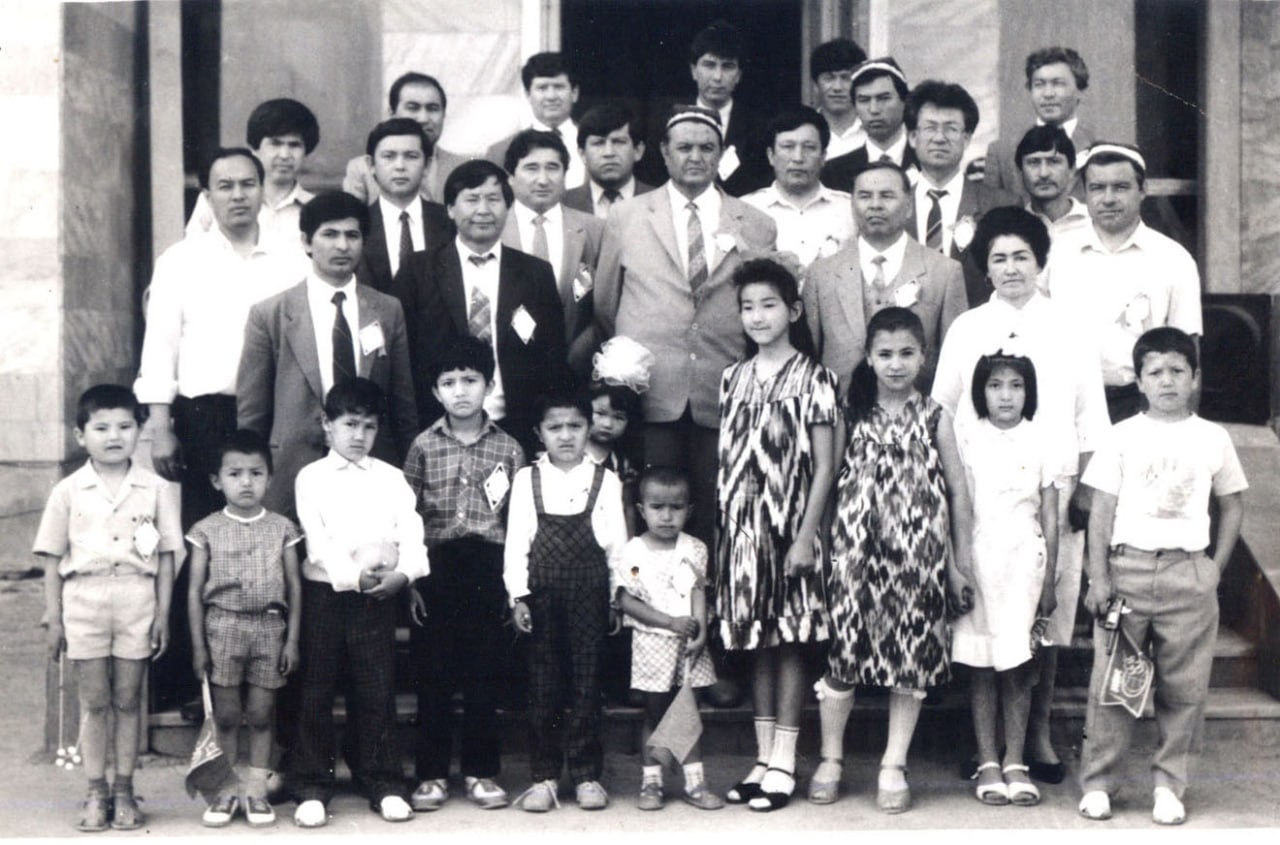
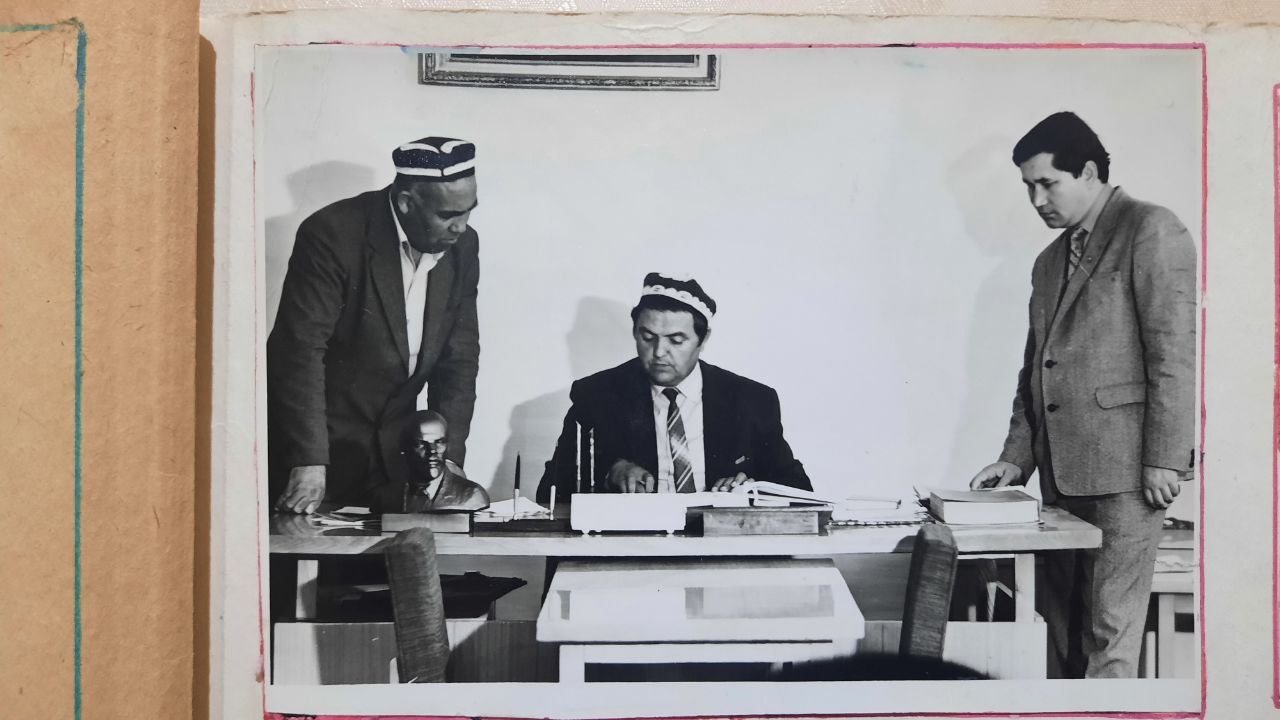
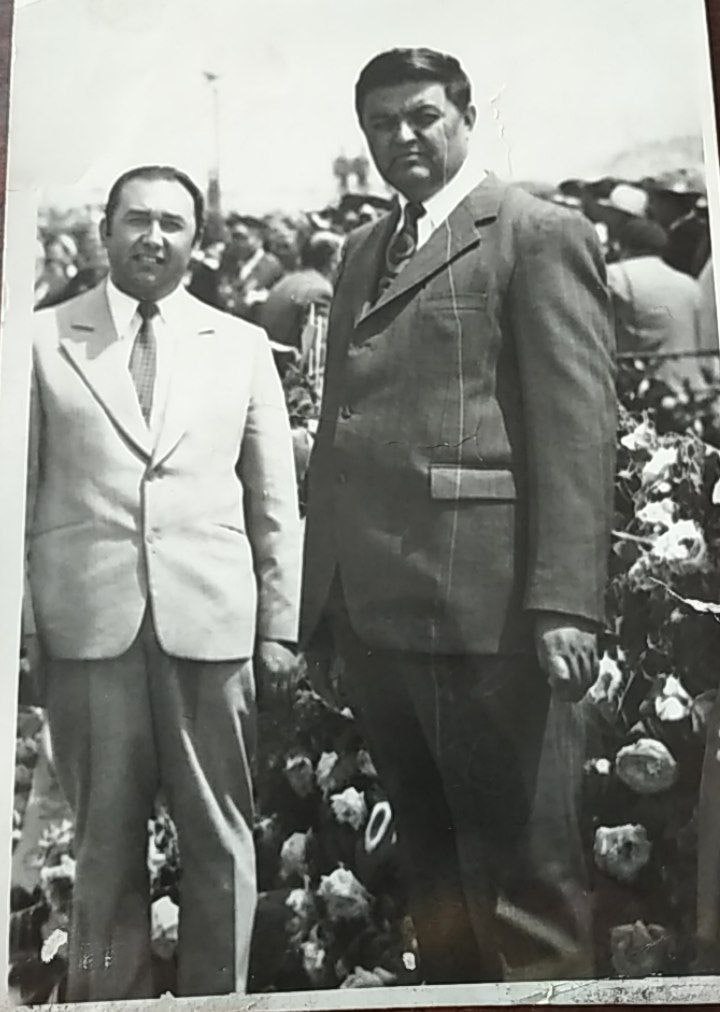
At the end of 1992, he was transferred to the position of deputy director of the educational and methodical center under the Ministry of Public Education of Uzbekistan. In January 1993, he returned to Samarkand and worked as the head of the language department at the cooperative institute. From February 1995, he headed the department of general and applied linguistics of the Samarkand State Institute of Foreign Languages. Since June 1997, he has been the head of the textual research center of Samarkand State University named after Alisher Navoi.
B. Orinboyev’s many years of effective scientific and pedagogical activities were highly appreciated by our government and people. He received “For his diligent work”, “Veteran of Labor” medals, “Excellence of Public Education of Uzbekistan”, “Independence” badges, honorary badges of the Republic of Uzbekistan, the title of “Distinguished Professor” at the Alisher Navoi Samarkand State University.
Walking on the path of science has always required a person to be ambitious, bold and willful, to strive for the future without deviating. Only a person who embodies these qualities can climb to the bright peak of science, enjoy it and enjoy others.
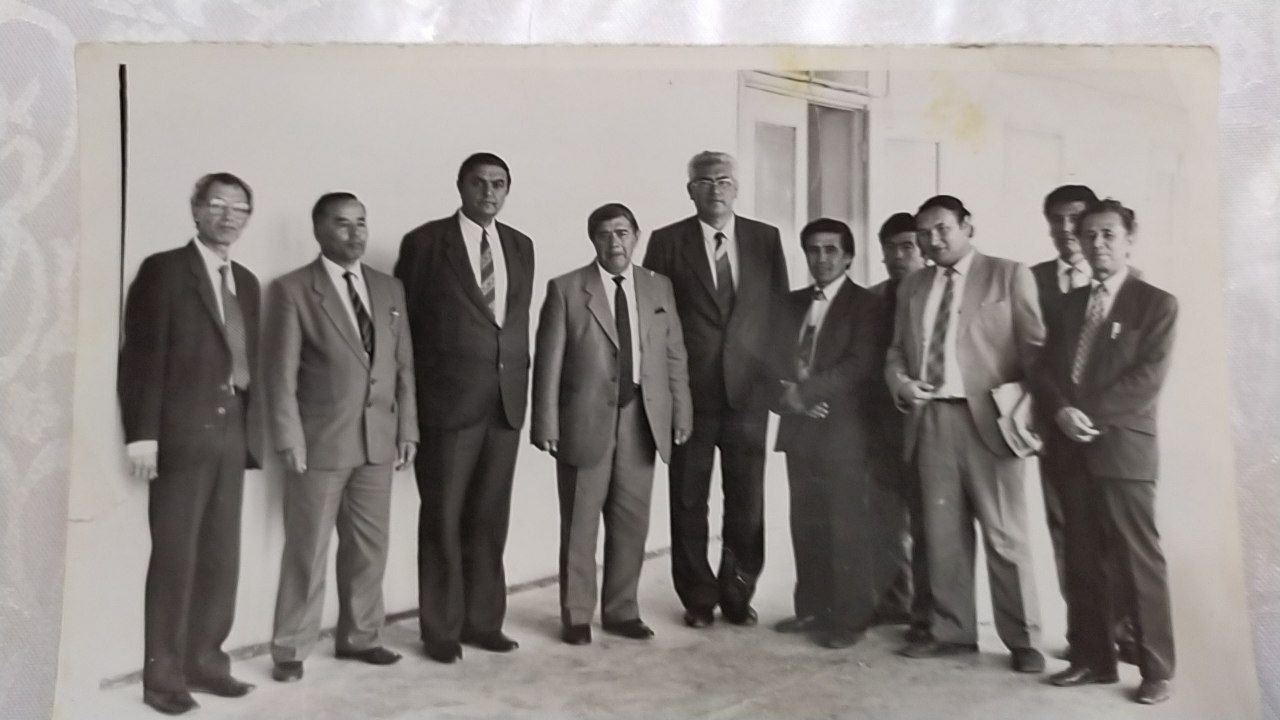
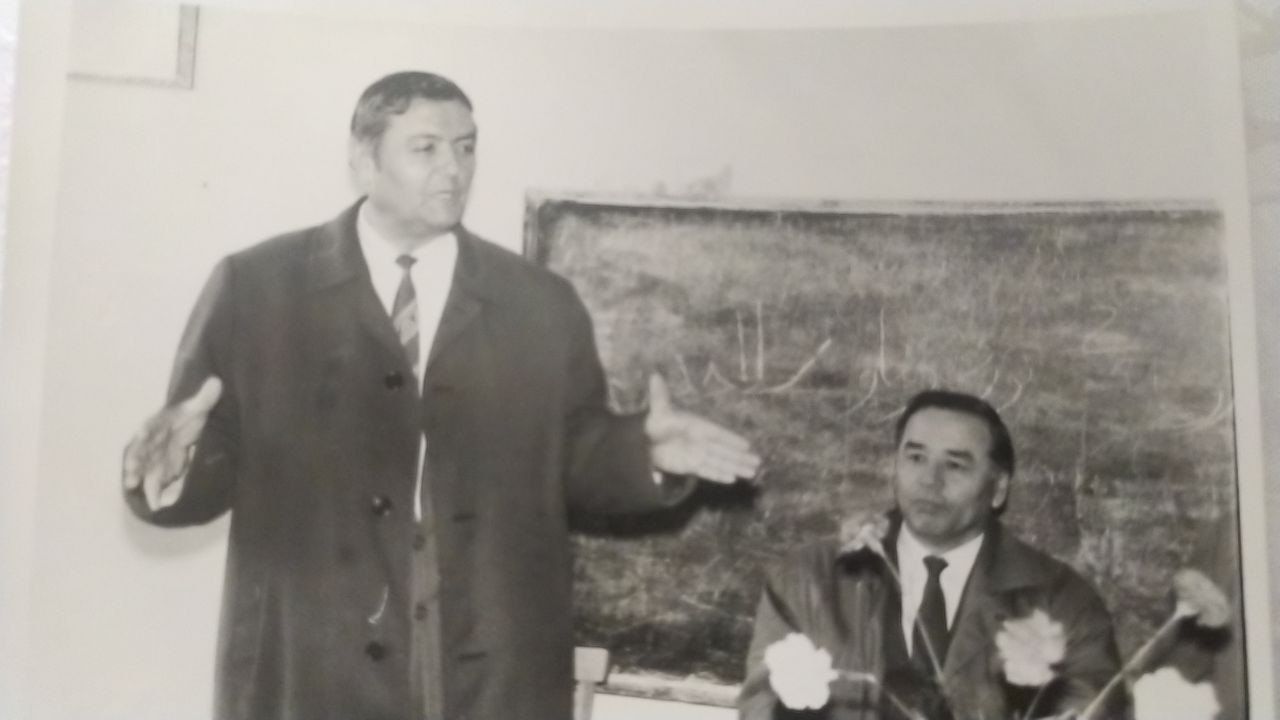
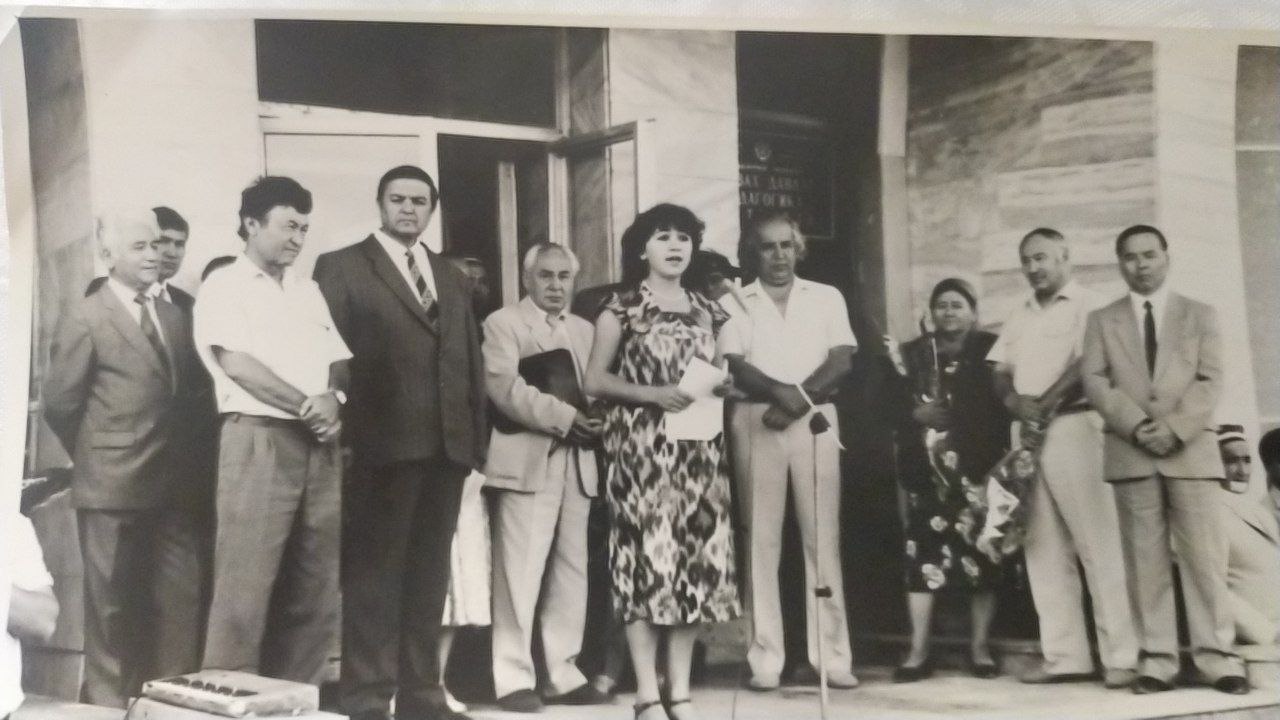
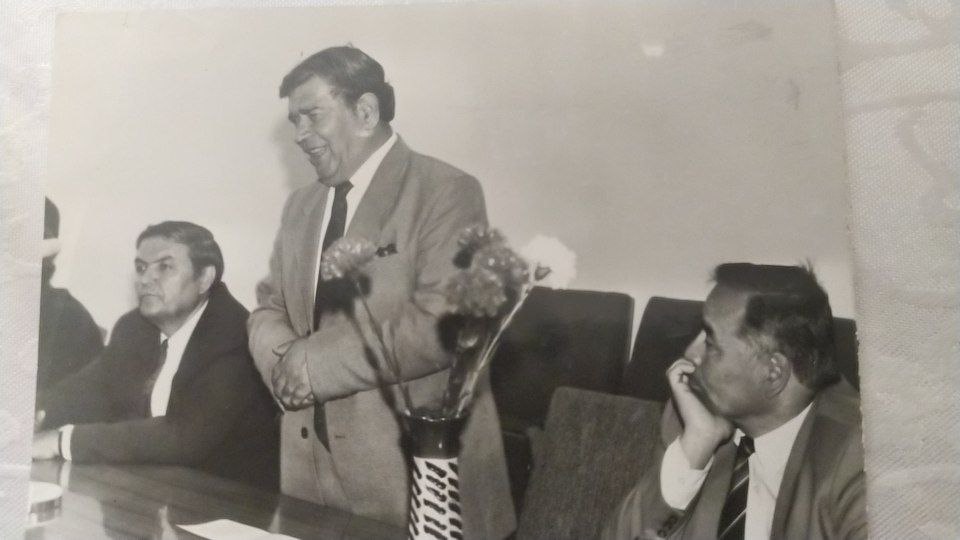
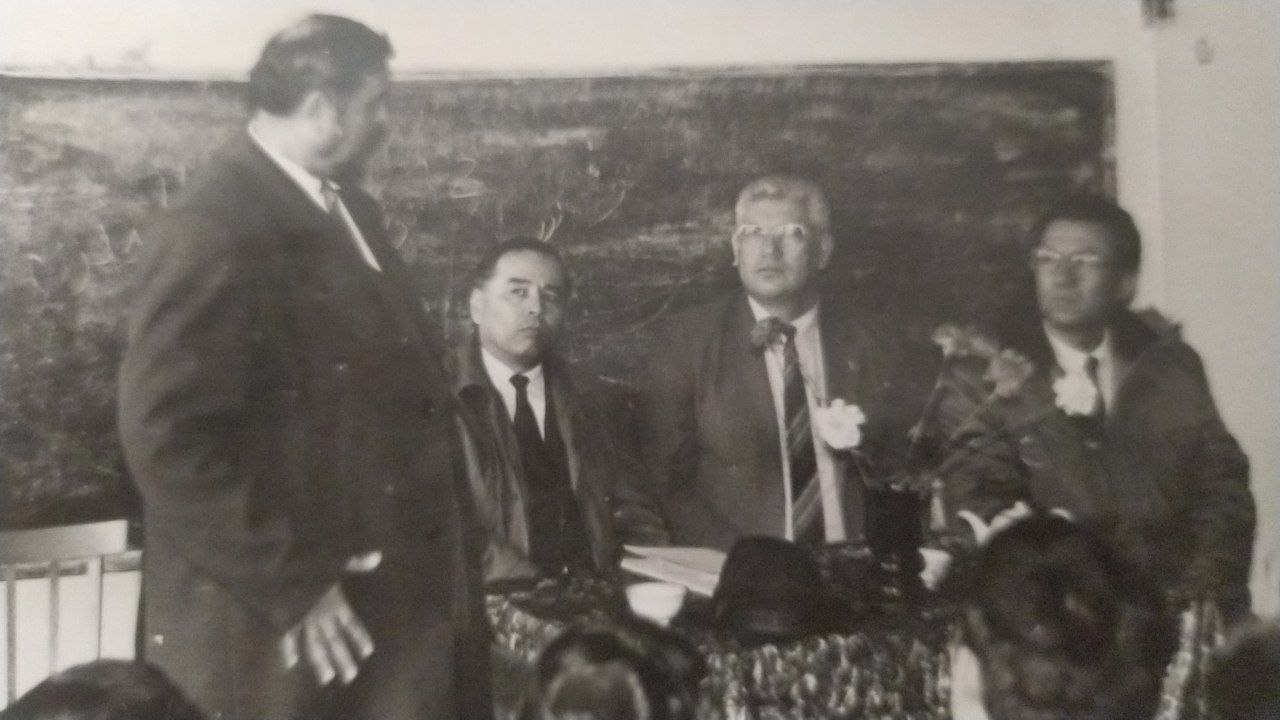
In 1964, B. Orinboyev defended his thesis for the candidate of philological sciences. His research in the field of the vocative category, which is a part of the rich linguistic layer typical of Uzbek colloquial speech, did not only earn him a diploma. These researches were a small window in big science for Bozorboy Orinboyev. From this window, he wrote “Some features of vocative words in modern Uzbek language” (1963), “Some comments about vocative sentences” (1964), “Consonantal sentences in modern Uzbek language”, “Current Scientific articles such as “about the words of reference in modern Uzbek language” (1967), “Historical development of vocative sentences and their meanings” (1969), “Words of reference in modern Uzbek literary language” (1971), ” The vocative category in the current Uzbek language” (1972) was published with a monograph. The scientist, who stepped into great science through this small window, tried to reveal the secrets of Uzbek colloquial speech on a large scale.
Each unit of speech, as a component of a whole system, enters into a different relationship with other units of the language, on this basis, it creates an opportunity for people to exchange ideas and communicate. This is called language practice. B. Orinboyev’s interests are focused on the issues of colloquial speech, stylistics, speech culture, which have not been addressed before in Uzbek linguistics and are related to the speech practice of language practice. According to the scientist, colloquial speech is the foundation of every perfect language, and it does not fit into any grammatical rules. That is, colloquial speech governs grammar, and it uses and demonstrates all the possibilities of the language. He scientifically felt such mysterious points characteristic of colloquial speech within that vocative category. In his opinion, this category was also the most mobile layer of conversational speech: the word “mother” can be translated as mother, my mother, my mum, my love, my prayer, ay, aya, mum and he observed that he experienced several emotional outbursts and that they did not fit into the scope of grammar. These did not give him peace for decades, and finally B. Orinboyev defended his thesis in 1976 to receive the scientific degree of doctor of philological sciences on the topic “Problems of Uzbek colloquial speech syntax”. In order to find out to what extent he has studied the issue of conversational speech, it is enough to give a list of scientific works written by a scientist in this field. Here are some of them: “General characteristics of Uzbek colloquial speech” (1968), “About colloquial speech”, “Communicative direction of dialogic reply” (1971), “Problems of colloquial speech” (1973), “Some Issues of Uzbek Conversational Speech” (1974), “Syntax Structure of Uzbek Conversational Speech” (1978), “Speech of Uzbek Conversation” (1982), “Stylistics of Uzbek Conversational Speech” (1983), “Phonetics of Uzbek colloquial speech” (1984), “Uzbek colloquial speech – a unique speech system” (1984), “Ellipsis in Uzbek colloquial speech” (1989 ), “Parsellization in colloquial speech” (1990), “The stylistic color of words in the lexicon of Uzbek colloquial speech” (1991), “The colloquial style of the modern Uzbek language” (1991) , “Word order in Uzbek colloquial speech” (1995), “Lexicon of colloquial speech and its differences according to the level of use” (1996), “Grammatic forms of nouns in colloquial speech” (1997 ), “Interchangeable use of agreement suffixes in colloquial speech” (2002).
Professor B. Orinboyev’s thorough engagement with the issues of conversational speech leads him to the secrets of the problems of speech culture and the art of oratory. In his opinion, language culture, the art of oratory is a historical phenomenon, every philologist should be aware of the secrets of this knowledge. For this reason, “About the art of oratory”, “Oratory and speech” (1972), “Speech and the art of speech”, “Some issues of Uzbek speech” (1973), ” The issue of speech culture and the role of the school in its formation” (1990), “Skill of speaking” (1984), “Lectures from Uzbek philology” (1997), “Which is better in speech: cacophemism or euphemism?” (1995), “Factors of formation of speech culture skills” (2002), “Factors of mother tongue education and speech development” (2003), such as scientific articles, monographs and manuals testify to the depth of his scientific talent.
Dialects also play a significant role in determining the norm of speech culture. For this reason, in the scientific researches of B. Orinboyev, issues of dialectology were interpreted on the basis of scientific materials. The analysis of these issues is expressed in the following scientific works of the scientist: “Circle of Dialectology” (1962), “Research on Dialectology” (1973), “Colloquial Speech and Peculiarities of Territorial Dialects” (1980 ), “Grammatic features of the Turko-Kaltatay dialect of the Uzbek language” (1985), “Invariant words in Uzbek colloquial speech and the experience of learning them in connection with folk dialects” (1991).
Professor B. Orinboyev’s scientific research in linguistics is directly connected with literature. He cannot imagine life or science without literature, and he considers literature, like language, to be the “jewel of the human spiritual world” (A. Navoi). That’s why he worked hard to study not only Uzbek literature, but also foreign literature and promote their famous representatives. In this direction, the following creative works of B. Orinboyev were published: “The great enlightener of the Russian people” (1966), “People’s poet” (1972), “Who is the main character?” (1973), “Talented Poet” (1975), “Diamond Edged Talent”, “Toward the Peaks of Creativity”, “Poetry and Science”, “The Main Idea of Our Literature” (1975), “The Owner of a Great Soul” , “The Greatness of the Poet” (1976), “Singer of Refinement”, “Fiery Lines”, “Singer of Brotherhood”, “I Live in the Wish of a Man” (1979), “Life Lines”, “If I Die, I Will Not Leave Your Hug” (1979), “Character, screen, image”, “Deep feelings”, “Realist writer” (1981), “Teacher – the heroes of our works” (1982), “The owner of a bright pen”, “A story about the poet’s childhood” (1983) , “Loyalty to duty” (1984), “A good poet, a good journalist” (1984), “Singer of people’s life’s emotions” (1987), “Poet Nurmon and his work “Prayer” (1988), “A. Tvardovsky’s work” (1991), “Sharof Rashidov” (1992), “Captain of the Wise” (1997), “Sheikh Khudoydodi Vali’s Literary Heritage” (2001), “The Role of Khoji Muin in the Development of Jadid Literature” (2002).
It is no coincidence that B. Orinboyev was seriously engaged in the history of our language and in 1969 he published the 270-page book “Essays on the History of the Uzbek Literary Language” in collaboration with his mentor Professor Ulug Toshmuhammedovich Tursunov. The scientist’s belief in the history of language is not limited to this. He deepened and improved his research on this issue and published “Changes in the Uzbek Language Lexicon”, “News in the Morphology of the Uzbek Language” (1967), “Alisher Navoi and the Uzbek Literary Language” (1968), ” Determination of lexical and grammatical norms in the language of Alisher Navoi’s works” (1971), “Alisher Navoi and the history of the Uzbek literary language” (1982), “Annotated dictionary of Navoi’s works” (1983), “The peak of Navoi’s work” (1985 ), explanatory words in the epic “Farhad and Shirin”, “Visual tools in the works of Alisher Navoi”, “Babur – linguist scientist” (1991), “Learning history – understanding the identity” (1992), “Self History of the Zbek Literary Language” (1995), “Architectural Terms of the Timurid Era” (1997), “Sufism Terms in the Text of Alisher Navoi’s Works” (1999), “Tonyuquq Bitiktoshi” (1999), “Lessons of Imam Bukhari” (2000), “Ancient Turkic Inscriptions” (2001), “Mahmud Kashgari: Bibliographic Index” (2002), “Geographical Terms in the Boburnoma Language” (2003) are the results of his scientific and creative work. It is a tribute of our clever scientist to the history of our language.
In the works of B. Orinboyev, great attention is paid to the history of enlightened ideas in Uzbekistan, issues of patriotism and international education in secondary schools and educational institutions, and issues of advanced pedagogical experience. The contents and results of such issues were expressed in the following works of the scientist: “Scientist and Teacher” (1965), “Commitment to the Ideas of Internationalism” (1971), “Let’s Raise Creative Youth” (1973), “The Honor of Pedagogy” ( 1974), “Give a deep education” (1977), “Maturity”, “A scene from the past”, “Let’s educate young people on the basis of beauty” (1978), “The first school of Jizzakh”, “The fulfillment of a dream” ( 1980), “Honest work brings happiness” (1981), “A school equal to the age” (1983), “Primary education – the basis of knowledge” (1985), “Spiritual – the basis of development” (1991).
The scientist recognized the educational institutions as a garden and followed the right path by “companionship with people who love happiness”. This way will give strength to his heart to shake his pen as a lover of our education. As a result, a number of scientific-methodical articles, recommendations, programs, training manuals and textbooks written by B. Orinboyev for the development of education continue to be a salve for the pain of that old man to this day. Here are some of them: “Alisher Navoi and the history of the Uzbek literary language” (1968), “The mother tongue is the leading subject in school” (1971), “The program of the basics of public speaking”) (1975), “The history of the Uzbek literary language” ” (1982), “Oratory skills”, “Methodical guide from the course on the basics of scientific research” (1984), “Methodological recommendations from the course on linguistic analysis of the literary text”, “Introduction to Turkish philology” (1989-2002), “The literary text Linguistic Analysis”, “Lectures on the Syntax of the Modern Uzbek Language” (Compound Sentences)”, “Program from the General Linguistics Course”, “Uzbek Language State Exam Program” (1971), “Uzbek Language and Literature program” (1992), “Let’s learn the Uzbek language” (1993), “Alphabet” (1994), “History of the Uzbek literary language”, “Gift”, “History of Linguistics” (1995), ” Let’s study the Uzbek-Latin alphabet” (1998), “History of Uzbek linguistics” (1999), “Syntax of modern Uzbek literary language” (2001), “General linguistics” (2002), “Uzbek structural grammar of the language” (2002), “The Uzbek language”, “Syntactic relations in the modern Uzbek language”, “Theory of Linguistics” (2003), “The Uzbek language” (2004). These works can be the basis for judging that a hard-working scientist is a real teacher, a teacher of teachers.
The key to B. Orinboyev’s success lies in how he learned from his teachers and life, what he learned and how he applied it.
A humble, talented scientist bows to his teachers with the following products of his work and, at least partially, gets rid of his debts to society. They are the following works: “The Humble Teacher” (1965), “The Treasure of the Scientist” (1975), “Our Linguistic Lover” (1980), “The Linguist” (1980), “The Famous Turkologist – Uzbek Scholar” (1982), ” Ulug’ Toshmuhammedovich Tursunov” (1985), “Hardworking scientist”, “One of the thirteen swallows” (1995), “Three scholars – three great teachers” (1999), “Ulug’ Tursunov and the School of Linguistics of SamSU” ( 2001), “Captain of the Wise” (2002), “A scientist who tried to connect the broken chain of literary history” (2002), “Interpretation of figurative tools” (2003), “Ulug Tursun and Samarkand School of Linguistics” (2004) are among them. .
During his career, Professor B. Orinboyev was interested in the etymology of words and published several articles and dictionaries based on them. “Toponyms of Jizzakh region” (1992), “Place names in literary texts and their typological analysis” (1996), “Explanation of toponyms of Samarkand region” (1997), “Forty words in names” (1998), “Explanation of toponyms through “cultivation of students’ creative thinking” (2001), “The Baburana interpretation of place names” (2002), “Names that live for centuries” (2003), “School toponymic dictionary” (2004).
With the honor of independence, a wide path was opened to study religious literature. Professor B. Orinboyev is also interested in the terms of Sufism and writes several works: “Dictionary of Sufism Terms” (1998), “Sufism and Architectural Terminology v Turkskih Yazikax” (1999), “Sufism Terms in Literary Texts and teaching them to interpret correctly” (1999), “Revolutions of Perfection” (2002).
Issues of text, textology and philological analysis of the text were also the focus of B. Orinboyev’s attention, and he published the following works dedicated to this topic: “Program from the course of linguistic analysis of the literary text” (1985), “Methodical from the course of the linguistic analysis of the literary text” (1989), “Usage of colloquial speech lexicon in literary text” (1989), “Place names in literary text and their typological analysis” (1996), “Text and philological analysis” (1998), “Current problems of textual studies ” (1999), “Research on text and its linguistic analysis” (1999), “Teaching generality and specificity in text analysis” (2000), “Skilled researcher of pragmatic interpretation of text” (2002).
As can be seen from the information mentioned above, the scope of scientific research of Bozorboy Orinboyev was wide, and the object of investigation was diverse.
Bozorboy Orinboyev’s scientific and methodical work has an important place in the editorship. He also edited more than 60 scientific collections, monographs, textbooks and manuals in Karshi, Samarkand and Jizzakh state pedagogical institutes.
The scientist devoted a large part of his scientific activity to the proud work of training scientific personnel in the field of linguistics. Mardonkul Tursunpolatov, Mamatkul Mamayusupov, Hamidulla Usmanov, Sabir Usmanov, who worked in the higher educational institutions of our republic, as well as candidates of science such as Abduvali Musayev, Keldibek Bozorboyev, Abdurayim Turobov, Mahmud Boboyorov, and doctor of science Usman Sanakulov, who are still working who defended their candidate and doctoral theses under the guidance of B. Orinboyev.
The scientist’s activity in training highly qualified scientific personnel is not limited to this. He is often invited to act as an official referee for dissertations, until now B. Orinboyev has been an official referee (opponent) for 12 doctoral theses and 14 candidate’s theses defended on the problems of the theory and history of linguistics. He has submitted his reviews to the abstracts of more than 120 candidacy and doctoral theses.
For 19 years, Professor Bozorboy Orinboyev worked as the rector of the Samarkand State Pedagogical Institute named after S. Ayni (1971-1974), the Jizzakh State Pedagogical Institute named after A. Qadiri (1974-1986, 1990-1992). His scientific and pedagogical activity served as a propagandist in the implementation of the decisions and instructions of our state and government aimed at the development of public education and the science of philology.
Throughout his life, the scientist carried out his main work in close connection with public affairs. He is a member of the Scientific-Methodological Council of the Republic of Uzbekistan Ministry of Education and Methodology Center for Mother Language and Old Uzbek Writing, Board of the Uzbek Language Standing Conference, Institute of Linguistics and Literary Studies of the FA of Uzbekistan He directly participated as a member of the scientific problem council “Coordinating the laws of development of national languages” under the Samarkand department.
Professor B. Orinboyev worked in 1982-2014 as a member of the scientific council for awarding scientific degrees in linguistics at the FA Linguistics Institute of Uzbekistan, and as a member of the council specializing in defense of candidate theses at Samaraqand State University.
B. Orinboyev, deputy of the Samarkand city council, member of the city party committee (1972-1975), deputy of the Jizzakh city council, member of the city party committee (1975-1986, 1990-1993), member of the Jizzakh regional party committee member of the committee (1976-1986), member of the bureau (1990-1993), deputy of the regional council (1990-1993), member of the Jizzakh regional people’s control committee (1980-1986), executive committee of the city of Jizzakh As a member of the committee and chairman of the youth work and monitoring commission (1976-1986), he made a great contribution to ensuring the effectiveness of the work of these councils.
Professor B. Orinboyev has 684 scientific, popular and journalistic works, 51 editorial works, 9 dissertations defended under his supervision, 15 master’s dissertations, dissertations defended under his supervision (written for the degree of candidate of philological sciences and doctor of philological sciences) 23 of them, 167 reviews of candidacy and doctoral theses, 947 works in total. In addition, the number of literature and articles devoted to the life and work of B. Orinboyev is 113.
Throughout his life, teacher and mentor Professor Bozorboy Orinboyev made a significant contribution to the development of higher education in our Republic, to the work of training skilled philologists, and to the development of linguistics.
Candidate of Philological Sciences, associate professor A. Musayev

